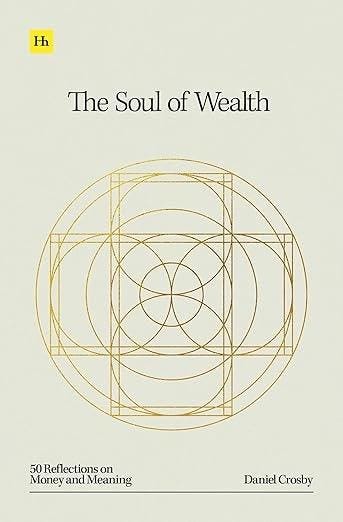Dr. Daniel Crosby’s latest book, The Soul of Wealth, explores the intricate connection between our inner lives and our financial well-being. Beyond the explicit themes of the book, however, lies a powerful framework for personal growth encapsulated in three simple yet profound words: Believing, Belonging, and Becoming. This framework offers a compelling mental model for a healthier, wealthier, and happier life, suggesting that investing time and resources in these three areas can yield significant returns in personal fulfillment.
Believing centers on the fundamental human need for meaning and purpose. As Dr. Arthur Brooks emphasizes, believing in something larger than oneself, whether a specific faith or a broader worldview, provides a crucial anchor in navigating life’s complexities. This sense of transcendence offers perspective on daily frustrations and strengthens resilience in the face of inevitable challenges. Crosby echoes this sentiment, aligning it with the "Meaning" component of Dr. Martin Seligman’s PERMA model for human flourishing. Crucially, our spending habits often reveal our true beliefs, offering a valuable opportunity for introspection and realignment. By consciously analyzing our expenditures, we can ensure our financial decisions reflect our core values and contribute to a life of greater purpose.
Belonging addresses the equally vital human need for connection and community. Brené Brown’s research underscores the profound importance of love and belonging as fundamental human needs, essential for our biological, cognitive, physical, and spiritual well-being. Crosby encourages us to extend this principle to our financial decisions, suggesting we invest in experiences shared with loved ones rather than material possessions. Studies indicate that experiences generate more lasting joy than material goods, and this joy multiplies when shared with others. Shifting our spending towards shared experiences, especially during holidays and special occasions, can strengthen our bonds with loved ones and create lasting memories. This shift can be a conscious choice to prioritize connection and create a richer, more fulfilling life.
Becoming focuses on personal growth and the continuous journey of self-discovery. It encourages us to consider our personal trajectory and strive towards self-actualization, as articulated by Abraham Maslow. This pursuit is not about individualistic ambition but rather about aligning our personal growth with our beliefs and our sense of belonging. It prompts us to ask: “Who do I want to be in the world?” and “Who do I want to be for the people I care about most?” This process of becoming is deeply intertwined with the previous two principles. Our beliefs shape our aspirations, and our connections provide the support and inspiration to pursue our goals. This synergistic relationship creates a powerful engine for personal transformation.
The power of this "Believing, Belonging, Becoming" framework lies in its recognition of these elements not merely as desirable ideals, but as fundamental human needs. We have a deep-seated need for meaning, connection, and growth. Ignoring these needs can lead to a sense of emptiness and dissatisfaction, while nurturing them fosters a sense of purpose, belonging, and fulfillment. They are not simply aspirational; they are integral to our well-being. This framework offers a compelling invitation to examine our lives through a new lens, recognizing the interconnectedness of our beliefs, relationships, and personal evolution.
Before setting resolutions for the year ahead, consider reflecting on these three core questions: What do you believe? To whom do you belong? Who are you becoming? These questions encourage introspection and provide a roadmap for aligning our actions with our values. By investing our resources – both time and money – in these areas, we can cultivate a life rich in meaning, connection, and purpose. This framework provides a practical and inspiring pathway towards a more fulfilling and meaningful life, suggesting that true wealth lies not just in financial abundance, but in the richness of our inner lives and the strength of our connections.
Ultimately, the "Believing, Belonging, Becoming" framework offers a powerful alternative to the often-superficial pursuit of material wealth and societal status. It invites us to define wealth in more holistic terms, encompassing our spiritual well-being, our relationships, and our ongoing journey of personal growth. By focusing on these core needs, we can create a life that is not only financially secure but also deeply fulfilling and aligned with our deepest values. This framework provides a powerful toolkit for navigating life’s complexities and cultivating a sense of purpose, belonging, and lasting happiness. It encourages us to invest not just in our financial portfolios, but in the richness and depth of our lives.

